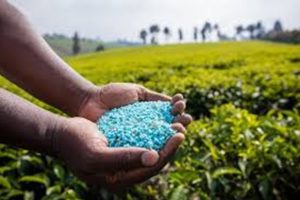
BY ABEBE WOLDEGIORGIS
For more than two years and half, the home grown economic reform is under implementation and for its effectiveness, various measures have been taken. Among others, tackling the obststacles that hamper the economic progress that include enacting various laws by the National Bank of Ethiopia (NBE) can be mentioned here.
While reflecting her stance with regard to the implementation aspect of the home grown economic reform, Fistsum Assefa (PhD), Minister of Plan and Development said that the measures taken to preserve the nation’s political continunity and to take the economy on the right track were very essential.
In the past, the economy was at the verge of depression due to mismanagement and negligency of political officials. Though the country is endowed with untapped natural resources and abundant human power, problems were pervasive at the macro and financial sectors. Thus, in order to tap these resources, functional laws which enable local and foreign investors doing business easily are introduced.
To evaluate the impact of the measures that have been taken in the last two years need some times. Nevertheless, in terms of infrastructural development the home grown economic reform brought tangible results.
In addition, progress has been witnessed in investment, export and mining sectors. As mentioned above, many laws have been improved for example; the nation’s trade law which has been existed for the last 60 years is improved. The logistic laws also are amended, she said.
Furthermore, the economy has been opened immensely for the private sector in the magnitude the nation never experienced in the past. Five sectors are prioritized by the home grown economic reform which include agriculture, tourism, mining, industry and service, the Minister added.
With regard to agriculture, new policies are introduced to support the sector such as importing agricultural technologies free of tax that enables the expansion of mechanization. Currently, 28 percent of the farm land is plowed by tractors and such practice plays pivotal role in transforming the sector.
According to the minister, more than 600 items that can be utilized as inputs are imported free of tax. The budget allocated to the sector also is increased by 100 percent. Public investment also boosted and in addition to the belg and meher production, irrigation farm in the dry season is also promoted and the volume of crop such as wheat yield is increased more than double.
The manufacturing sector has also showed progress but evaluating their ultimate achievement may take some time.
It must be understood that the implementation of the economic reform faces various challenges both domestically and internationally. However, the challenge of one sector is different from the other. The investment allotted to the tourism is huge but the sector was critically affected by COVID-19. As a result, the inflow of both domestic and foreign tourists was declined. But the recent trend shows that there is some progress in the sector, Dr. Fitsum noted.
The State Minister of Finance, Eyob Tekalign (PhD) on his part said that the home grown economic reform targets on redressing the ailing economy and later on to put on the right track and to lead the progress in a blistering pace.
There was anomaly in the macro economic land scape. The public sector was unable to serve the debt it obtained from forign sources. Therefore, the main task of the current government after its establishment has been recovering the economy and the economic reform played its part to adjust the debt service and to secure additional loan.
It also brought a paradium shift on attitudinal change by looking other sectors which can surpass the traditional agricultural sector in garnering foreign currency such as mining and ICT. Through utilizing additional inputs, improving agricultural productivity is realized. New eco torism sites which can boost the sector are discovered. The ICT also began to play crucial role in providing job creation skill to the youth.
As to Eyob, when talking about economic progress, it must be inclusive and benefiting all with no marginalizing some segment of the society. Farming in cluster form through mechanization could raise farmers’ income.
More importantly, had there not been the introduction of the economic reform, the nation would have faced disasterous situation. It also enabled the nation to withstand economic pressure by the western countries on top of coping up with the inpact of COVID-19, war in the northern part of the country and locust invasion.
As to him, recently, the IMF delegate made a working visit here and appreaciated the government’s actions to create resilient economy.
Export is continued at a remarkable level, investment inflow is grown to 50 billion Birr and these all achievements are the outcomes of the reform.
While countries such as Sirlanka and Kenya failed to serve their foreign debt, Ethiopia could reduce its debt burden by huge amount. It could pay the Euro bond earlier than the dead line. But the State Minister did not deny that there are also actions that did not achieve the targeted goal particulary controlling inflation due to international economic crises.
There are still unfinished public projects under going and the government expenditure also can pose inflation. Asked what measure can be taken to curb inflational impact in this regard, Fitsum said that the pumping of money in the market might bring inflation. It is obvious that after the reform huge investment is carried out in tourism but observing their outcome needs some time.
As to her, in the given economy, finance plays crucial role in facilitating growth but the excessive allocation of money in the market also poses inflation. The financial means also might bring opportunity or risks. In the era of GTP 2, the nation development endeavor was financed by huge commercial foreign loan with high interest rate. The home grown economic reform targets to reduce such huge debt. But the tourism projects are finaced by other innovative means which invites scholars to write study paper. The first tourism project was locally named as “Gebeta le sheger” followed by the “Gebeta le hager” The projects were run by the money contributed by citizens without the injection of additional money into the market.
The projects were not financed by the government’s budget. It can be taken as development model and did not pose additional demand in the market. In the past, investment allocated for the accomplishment of the projects created job opportunity to the remarkable segment of the society on construction and other activities.
By the same token, tourisim projects create job opportunity for the large segment of the society in the bottom up approach which comprise from unskilled labor up to the highly qualified professionals. The sector creates value chain to each house hold from tourist Guide up to travel agents, hotels, air lines and others. The sector is also preferable because it is environmentally friendly.
The projects that are undergoing other than tourism need more money to advance the economy. The nation still needs money for the construction of infrastructure such as roads, hydro power and irrigation dams because such projects play pivotal role in tapping the naturalresources. The allocation of budget for the projects is based on its feasibility in terms of benefiting citizens rather than politically driven regional balance. This is a dramatic shift.
Currently, in order to stabilize the economy the government allowed importers to import basic goods in Franco valuta to stabilize the market. Such measure has its own merit and demerit and inflation is still continued. Reflecting his view in this matter Eyob said that in order to regulate the economy various measures have been taken.
For example, to reduce the injection of money to the market for the completion of projects is declined because it has inflational consequence. The government compromised its income from tax in order to support the ordinary citizens through providing basic products by subsidized price. As to Eyob, when decision is made with regard to the introduction of Franco valuta the nation was critically suffering from shortage of basic commodities.
There were options for importing basic necessities the first was the National Bank of Ethiopia to allocate hard currency the other was the domestic industries to produce more basic commodities but the two options could not satisfy the market. Therefore, allowing Franco valuta for a short term was taken as a viable option, in such a way at least the poor could obtain the basic commodities with reduced price and almost 90 percent of the supply was covered through Franco valuta and the dicisson was vital in this regard.
THE ETHIOPIAN HERALD FRIDAY 8 JULY 2022





